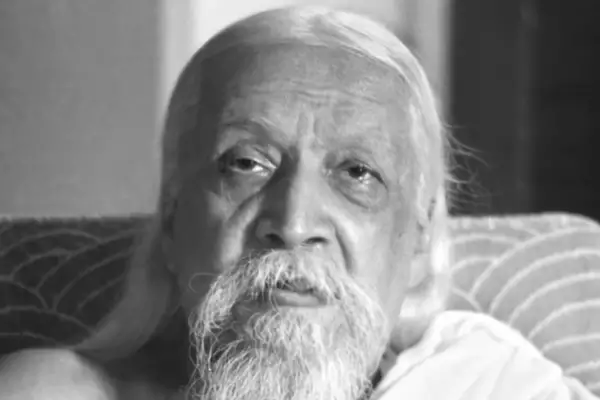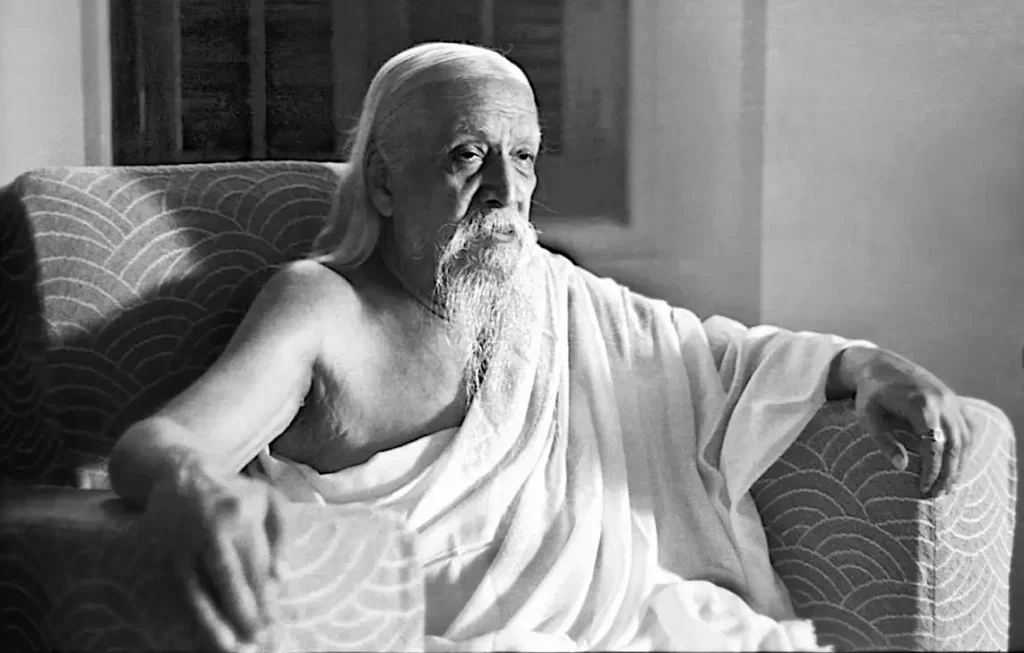The Prime Minister recently paid homage to the revered philosopher, thinker, and spiritual leader Sri Aurobindo, on the occasion of his 150th birth anniversary.
About Sri Aurobindo:
Early Life:
- Sri Aurobindo, born Aurobindo Ghose on August 15, 1872, in Calcutta (Kolkata), India, was a renowned yogi, philosopher, poet, and Indian nationalist.
- His early education took place at the Christian Convent school in Darjeeling, and he later studied at Cambridge University in England, where he became proficient in European languages.
- After returning to India in 1892, he held various administrative positions in Baroda and Calcutta.
Career:
- In 1890, Aurobindo passed the Indian Civil Service Examination but failed the horsemanship test, preventing his entry into the service.
- He began working in the Baroda state service in 1893 and spent 13 years there, eventually becoming the principal of the Baroda State College.
- Aurobindo became a prominent figure in the Indian freedom movement, writing fearless articles for the English newspaper Bande Mataram and contributing to the Bengali weekly Yugantar.
- He founded the weekly English journal Dharma, advocating for Swaraj (freedom from British rule), and was a key figure in the Anushilan Samiti, which protested British rule.
- He was also a leading opponent of the 1905 Partition of Bengal and supported the boycott of British institutions.
Revolutionary to Spiritual Activities:
- In 1906, he was charged in the Alipore Bomb Case and sentenced to jail, spending a year in solitary confinement before being released with the help of Deshbandhu Chittaranjan Das.
- After his release, he decided to shift his focus from politics to spirituality.
- In 1910, Aurobindo moved to the French colony of Pondichéry (now Puducherry) and founded the Sri Aurobindo Ashram in 1926.
- He dedicated himself to developing his concept of “integral” yoga, which aimed to elevate human consciousness and self-awareness.
- His major works include:
- Essays on the Gita (1922), Life Divine (1939), Collected Poems and Plays (1942), Synthesis of Yoga (1948), Human Cycle (1949), Ideal of Human Unity (1949), Savitri (1950), and On the Veda (1956).
- In his philosophical writings, Aurobindo integrated Indian and Western ideals, asserting that both intellectual and spiritual pursuits contribute to understanding existence.
- He explored metaphysical concepts, combining insights from the Upanishads with Western philosophical thought, and advocated for a fusion of spirituality and materialism.
- His beliefs included spiritual determinism, where he saw history as a manifestation and self-revelation of the divine.
- Sri Aurobindo passed away on December 5, 1950, in Pondichéry.
Ref: Source
| UPSC IAS Preparation Resources | |
| Current Affairs Analysis | Topperspedia |
| GS Shots | Simply Explained |
| Daily Flash Cards | Daily Quiz |
Frequently Asked Question:
Who was Sri Aurobindo?
Sri Aurobindo, born on August 15, 1872, in Calcutta (Kolkata), India, was a renowned yogi, philosopher, poet, and Indian nationalist.
What was his early education like?
Sri Aurobindo received his early education at the Christian Convent school in Darjeeling. He later studied at Cambridge University in England, where he became proficient in several European languages.
Who helped Sri Aurobindo in the Alipore Bomb Case?
In 1906, Sri Aurobindo was charged in the Alipore Bomb Case and sentenced to jail. He spent a year in solitary confinement before being released with the help of Deshbandhu Chittaranjan Das.



